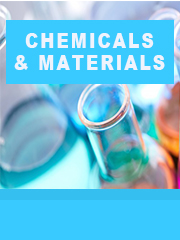Report overview
A Carbon Adsorber is a type of pollution control equipment that is used to abate Volatile Organic Compounds (VOCs) in low concentration gas streams. Adsorption is a filtration method used to remove volatile organic compounds (VOCs) from waste gas streams. A Carbon Adsorber can be used when you are trying to accomplish one or all of these these three things: VOC abatement, no NOx, and solvent recovery.
This report aims to provide a comprehensive presentation of the global market for Carbon Adsorbers, with both quantitative and qualitative analysis, to help readers develop business/growth strategies, assess the market competitive situation, analyze their position in the current marketplace, and make informed business decisions regarding Carbon Adsorbers. This report contains market size and forecasts of Carbon Adsorbers in global, including the following market information:
Global Carbon Adsorbers Market Revenue, 2018-2023, 2024-2029, ($ millions)
Global Carbon Adsorbers Market Sales, 2018-2023, 2024-2029, (Units)
Global top five Carbon Adsorbers companies in 2022 (%)
The global Carbon Adsorbers market was valued at US$ 440.6 million in 2022 and is projected to reach US$ 591.9 million by 2029, at a CAGR of 4.3% during the forecast period. The influence of COVID-19 and the Russia-Ukraine War were considered while estimating market sizes.
North America has the largest global export quantity and manufacturers in Carbon Adsorbers/Carbon Adsorption Systems market, while the Europe is the second sales volume market for Carbon Adsorbers/Carbon Adsorption Systems in 2019. In the industry, Parker profits most in 2019 and recent years, while Calgon Carbon Corporation (Kuraray) and TIGG LLC (Newterra Group) ranked 2 and 3. The market share of them is 33.30%, 12.83% and 9.17% in 2019. The gap of market share is keep on enlarged due to different strategy. Nowadays, there are five mainly types of Carbon Adsorbers/Carbon Adsorption Systems, including Deep Bed Adsorber, Parallel Bed Adsorber, Multiple Adsorber Vessel System, Carbon Tray Adsorber and Carbon Filter Adsorber. And Deep Bed Adsorber is the main type for Carbon Adsorbers/Carbon Adsorption Systems, and the Deep Bed Adsorber reached a sales volume of approximately 31486 Units in 2019, with 46.60% of global sales volume.
We surveyed the Carbon Adsorbers manufacturers, suppliers, distributors and industry experts on this industry, involving the sales, revenue, demand, price change, product type, recent development and plan, industry trends, drivers, challenges, obstacles, and potential risks.
Total Market by Segment:
Global Carbon Adsorbers Market, by Type, 2018-2023, 2024-2029 ($ Millions) & (Units)
Global Carbon Adsorbers Market Segment Percentages, by Type, 2022 (%)
Deep Bed Adsorber
Parallel Bed Adsorber
Carbon Tray Adsorber
Carbon Filter Adsorber
Multiple Adsorber Vessel System
Global Carbon Adsorbers Market, by Application, 2018-2023, 2024-2029 ($ Millions) & (Units)
Global Carbon Adsorbers Market Segment Percentages, by Application, 2022 (%)
Industrial Applications
Municipal Applications
Others
Global Carbon Adsorbers Market, By Region and Country, 2018-2023, 2024-2029 ($ Millions) & (Units)
Global Carbon Adsorbers Market Segment Percentages, By Region and Country, 2022 (%)
North America
US
Canada
Mexico
Europe
Germany
France
U.K.
Italy
Russia
Nordic Countries
Benelux
Rest of Europe
Asia
China
Japan
South Korea
Southeast Asia
India
Rest of Asia
South America
Brazil
Argentina
Rest of South America
Middle East & Africa
Turkey
Israel
Saudi Arabia
UAE
Rest of Middle East & Africa
Competitor Analysis
The report also provides analysis of leading market participants including:
Key companies Carbon Adsorbers revenues in global market, 2018-2023 (Estimated), ($ millions)
Key companies Carbon Adsorbers revenues share in global market, 2022 (%)
Key companies Carbon Adsorbers sales in global market, 2018-2023 (Estimated), (Units)
Key companies Carbon Adsorbers sales share in global market, 2022 (%)
Further, the report presents profiles of competitors in the market, key players include:
Parker
Calgon Carbon Corporation (Kuraray)
TIGG LLC (Newterra Group)
Evoqua Water Technologies
D?rr
KAESER KOMPRESSOREN
Baron Blakeslee
Process Combustion Corporation (PCC)
HEIL Engineered Process Equipment Inc.
Integrity Municipal Systems, LLC
Monroe Environmental
Gulf Coast Environmental Systems (GCES)
Armatec Environmental Ltd
KCH Services Inc.
The Forbes Group
JFE Engineering Corporation
Outline of Major Chapters:
Chapter 1: Introduces the definition of Carbon Adsorbers, market overview.
Chapter 2: Global Carbon Adsorbers market size in revenue and volume.
Chapter 3: Detailed analysis of Carbon Adsorbers manufacturers competitive landscape, price, sales and revenue market share, latest development plan, merger, and acquisition information, etc.
Chapter 4: Provides the analysis of various market segments by type, covering the market size and development potential of each market segment, to help readers find the blue ocean market in different market segments.
Chapter 5: Provides the analysis of various market segments by application, covering the market size and development potential of each market segment, to help readers find the blue ocean market in different downstream markets.
Chapter 6: Sales of Carbon Adsorbers in regional level and country level. It provides a quantitative analysis of the market size and development potential of each region and its main countries and introduces the market development, future development prospects, market space of each country in the world.
Chapter 7: Provides profiles of key players, introducing the basic situation of the main companies in the market in detail, including product sales, revenue, price, gross margin, product introduction, recent development, etc.
Chapter 8: Global Carbon Adsorbers capacity by region & country.
Chapter 9: Introduces the market dynamics, latest developments of the market, the driving factors and restrictive factors of the market, the challenges and risks faced by manufacturers in the industry, and the analysis of relevant policies in the industry.
Chapter 10: Analysis of industrial chain, including the upstream and downstream of the industry.
Chapter 11: The main points and conclusions of the report.
